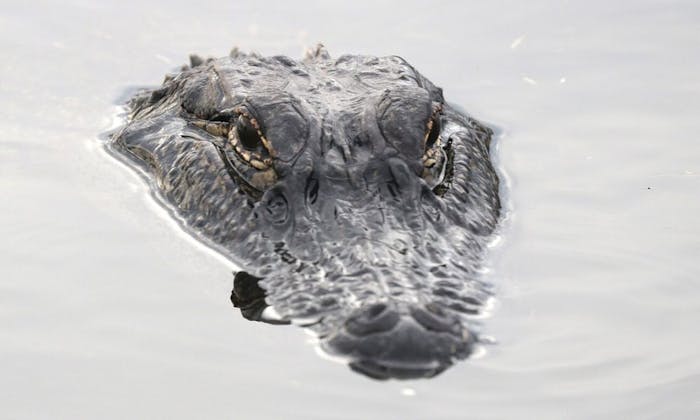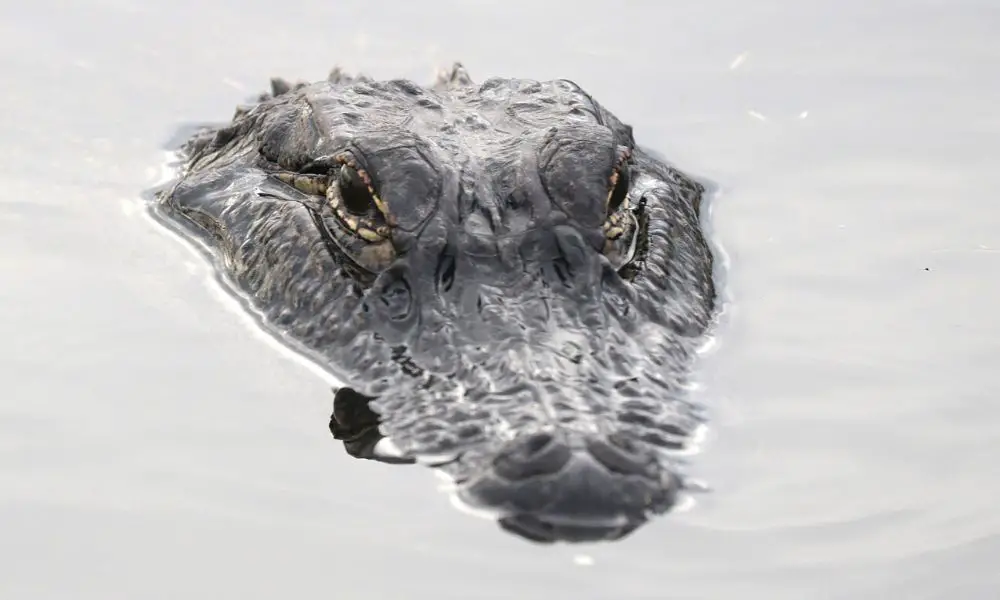Alligators are one of the most fascinating creatures that can be found in the water. They are often associated with danger, but they are also a symbol of power and strength. Many people are curious about when these creatures come out of the water and what they do when they are not swimming.
Alligators are cold-blooded reptiles, which means that their body temperature is regulated by the temperature of their environment. As the weather gets warmer, alligators are more likely to come out of the water to bask in the sun and regulate their body temperature. However, they are also known to be active at night, making them a mysterious and intriguing creature to observe.
Alligators come out of the water during the daytime, usually in the morning and early evening. They are cold-blooded creatures that need to regulate their body temperature, so they bask in the sun to warm up. During the hottest months, they may come out more frequently to cool off in the shade. It’s important to remember that alligators are dangerous animals, so always keep a safe distance and never approach them.

When Do Alligators Come Out of the Water?
Alligators are fascinating creatures found in the southeastern United States. These reptiles are often seen lurking in the water, but have you ever wondered when they come out of the water? This article will provide you with all the information you need to know about when alligators come out of the water.
Temperature
Alligators are cold-blooded animals, which means they depend on external sources of heat to regulate their body temperature. During the winter months, when the water temperature drops below 68 degrees Fahrenheit, alligators become less active and will stay in the water to conserve heat. However, when the water temperature rises above this threshold, alligators will start to become more active and will spend more time on land.
When the water temperature reaches 80 degrees Fahrenheit, alligators will spend most of their time basking in the sun on the banks of the water. This behavior is known as thermoregulation, and it helps them regulate their body temperature. Alligators will remain out of the water until the temperature drops again.
Time of Day
Alligators are most active during the early morning and late afternoon. During the middle of the day, when the sun is at its highest, alligators will retreat to the water to stay cool. In the late afternoon, when the sun starts to set, alligators will come out of the water to bask in the sun and hunt for food.
Breeding Season
Breeding season for alligators is from April to May. During this time, male alligators will come out of the water and start to look for a mate. They will spend more time on land during this period, and you are more likely to see them during the day. Female alligators will lay their eggs in June and July and will spend most of their time on land during this period.
Food Availability
Alligators are opportunistic feeders and will eat almost anything they can catch. During times of high food availability, alligators will spend more time on land hunting for food. This usually occurs during the summer months when fish and other animals are more abundant.
Benefits of Seeing Alligators
Alligators are fascinating creatures and seeing them in their natural habitat can be an incredible experience. It is important to remember to keep a safe distance from alligators as they are wild animals and can be dangerous. Watching alligators bask in the sun, hunt for food, and interact with each other is a unique experience that can only be found in the southeastern United States.
Alligators Vs. Crocodiles
Many people often confuse alligators with crocodiles. While they may look similar, there are some key differences between the two. Alligators have a broader snout and are typically a darker color than crocodiles. Additionally, alligators are found in freshwater habitats, while crocodiles are found in both freshwater and saltwater habitats.
Conclusion
Alligators are amazing creatures that spend most of their time in the water. However, they do come out of the water for a variety of reasons, including regulating their body temperature, hunting for food, and mating. If you ever have the opportunity to see alligators in their natural habitat, be sure to keep a safe distance and enjoy the unique experience.
Frequently Asked Questions
Below are some frequently asked questions about alligators and their behavior.
What is the best time of day to see alligators?
Alligators are most active during the early morning and late afternoon. This is when they are most likely to be out of the water and basking in the sun. However, alligators can be seen at any time of day, so it’s always important to use caution when near bodies of water where alligators may be present.
If you are interested in seeing alligators in their natural habitat, consider taking a guided tour with a trained professional who can help you observe these fascinating creatures safely.
How long can alligators stay underwater?
Alligators are excellent swimmers and can stay underwater for up to an hour without coming up for air. This is because they have a special valve in their throat that allows them to close off their airway while they are submerged. Alligators also have a high tolerance for carbon dioxide, which allows them to conserve oxygen and stay underwater longer.
It’s important to remember that alligators are wild animals and should never be approached or disturbed while they are in the water. If you see an alligator in the water, give it plenty of space and observe it from a safe distance.
Do alligators hibernate?
Alligators do not hibernate in the traditional sense, but they do go into a period of decreased activity during the colder months. This is known as brumation, and it is similar to hibernation in that the alligators become less active and their metabolism slows down. During this time, alligators may stay in their dens or burrows for extended periods of time to conserve energy.
However, alligators can still be active during the winter months if temperatures are warm enough. This is why it’s important to always be cautious around bodies of water where alligators may be present, even during the winter months.
What do alligators eat?
Alligators are carnivores and primarily eat fish, turtles, and small mammals. They are also opportunistic feeders and will eat whatever prey is available to them, including birds, snakes, and even other alligators.
Alligators are apex predators in their habitats and play an important role in maintaining the balance of the ecosystem. It’s important to remember that alligators are wild animals and should never be fed by humans, as this can lead to dangerous behavior and alter their natural feeding habits.
How long do alligators live?
Alligators can live for up to 50 years in the wild, and even longer in captivity. The lifespan of an alligator depends on a variety of factors, including habitat quality, availability of food and resources, and exposure to disease and other environmental stressors.
Alligators are a long-lived and important species in many ecosystems. It’s important to respect their habitats and behavior to ensure their continued survival for generations to come.
Alligator rushes out of water, steals Florida boy’s fish in viral video
In conclusion, understanding when alligators come out of the water is essential for anyone living in or visiting areas with alligator populations. During the warmer months, alligators may be more active and likely to come out of the water during the day to bask in the sun. However, during the colder months, alligators may only come out of the water to feed and may be more active at night.
It is important to remember that alligators are wild animals and should always be treated with caution and respect. If you encounter an alligator, it is best to keep a safe distance and never approach or feed them. Additionally, it is important to follow local guidelines and regulations regarding alligator sightings and interactions.
Overall, understanding the behavior and habits of alligators can help keep both humans and alligators safe. By being aware of when alligators are most likely to come out of the water, we can better prepare ourselves and avoid potentially dangerous situations.


